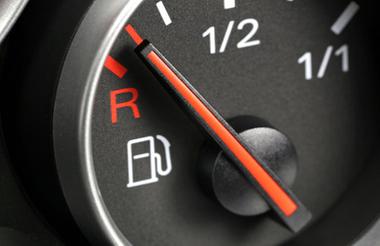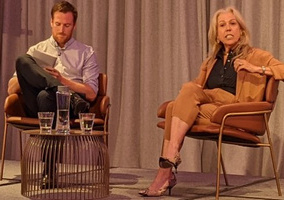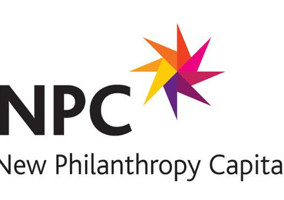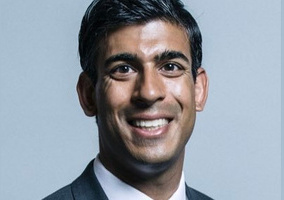A group of charities has urged the government to intervene after warning that high fuel prices risk deterring people from volunteering and leaving volunteer-run transport services at risk.
Community Transport Association (CTA) and 10 other charities, including the National Council of Voluntary Organisations (NCVO) and National Association for Voluntary and Community Action (NAVCA), wrote a letter to former chancellor Rishi Sunak to increase the approved mileage allowance payment (AMAP) in line with inflation.
AMAP is a tax-free payment that helps cover the cost of fuel for employees who use their own cars for business journeys and volunteer drivers. The rates for cars and vans currently stand at 45p for the first 10,000 miles and 25p for over 10,000 miles and have not increased in a decade.
The letter said that the current rates disincentive volunteering and putting volunteer-run transport services at risk, urging the chancellor, now Nadhim Zahawi, to review them in his October budget.
Fuel cost crisis damaging the voluntary sector
The letter said that the AMAP rates no longer fully cover volunteer drivers’ expenses due to rising fuel prices.
“This is having a serious knock-on impact on our members’ ability to recruit and retain volunteers to deliver essential services, such as transport to GP and hospital appointments for older and disabled people,” it states.
Research from the charity RAC Foundation shows that before Russia invaded Ukraine in February, the cost of motoring had already increased by more than 25% since 2012.
The signatories of the letter argued that the current economic and geopolitical context is likely to exacerbate the fuel cost crisis in the foreseeable future, which “threatens to negatively impact organisations who rely on volunteers right across the UK”.
They wrote: “We believe that there needs to be an urgent inflationary uplift to the current AMAP rates. We recognise that what may be required is a short-term fix, given the likely growth in use of electric vehicles, which requires a more fundamental reassessment of how to fairly reimburse volunteers at the same time as decarbonising our transport system. However, we need the UK government to act now amid the cost-of-living crisis to safeguard the future of the charities and organisations who rely on volunteer drivers who deliver lifeline services.
“Given the cost-of-living pressures that many volunteers are facing, this is an added expense they cannot afford to absorb. We strongly believe these volunteers should not experience any out-of-pocket expenses in the role of volunteering.”
Government incentives ‘not enough to off-set increasing fuel costs’
Earlier this year, Sunak announced a 5p per litre reduction in fuel duty until March 2023 to help cash-strapped motorists.
The letter said that although the reduction is welcome it does not go far enough to “off-set the dramatic rising fuel costs”.
It added: “We understand that the government sets the AMAP rates to minimise administrative burdens, and what the rate is set up to reflect. We also understand that organisations are not required to use the AMAPs, instead they can agree to reimburse the actual cost incurred.
“However, I am sure you can agree this is a laborious task for a volunteer to undertake or paying a higher rate, would require a self-assessment form to be completed by the volunteer which again is not something that many volunteers would consider doing given the risk it may cause either being liable to pay tax or risk reducing the benefits which they may receive.”
Crisis is making volunteering ‘unaffordable’
Jen Reston, chair of the Scottish Volunteering Forum, said: “Our members are reporting that volunteers are leaving their roles due to the cost-of-living crisis and soaring fuel costs. This is making volunteering unaffordable for people which is not acceptable. It then impacts on the ability to deliver services, meet commitments and support those in need of services.
“No volunteer should be out of pocket for volunteering. Volunteering cannot be an activity that can only be accessible for those who can afford it. This will further exacerbate inequalities in our communities. Volunteering has to be accessible for all and the mileage rate reviewed and increased, to ensure that vital services can continue.”
‘Drivers can no longer afford to volunteer’
Maddy Desforges, chief executive officer of NAVCA, said: “NAVCA members report people stopping volunteering due to the cost-of-living crisis. We call on the chancellor to increase the AMAP rate to reflect additional costs and enable people from all backgrounds to volunteer – an important part of levelling up disadvantaged communities.”
Echoing her comments, Noeleen Lynch, CTA’s director for Northern Ireland, said: “We hear reports from our members every single day of drivers who can no longer afford to volunteer as the current AMAP rate no longer covers their expenses. The fuel costs crisis is having a serious knock-on impact on our members’ ability to recruit and retain volunteers and to deliver essential services.
“Given the cost-of-living pressures we’re facing, volunteering can be an added expense many cannot absorb. We strongly believe that volunteering should be affordable for everyone and that volunteers should not experience any out-of-pocket expenses.”
NCVO: ‘Negative impact on charities’
Sarah Vibert, chief executive officer of NCVO, said: “Rising petrol costs are making it increasingly difficult for volunteers and charity staff to drive as part of their roles. This is having a negative impact on charities at a time when their support for communities is needed more than ever.
“That’s why we’re calling on the government to review the mileage rate to help with transport costs related to volunteering. This will ensure that charities get the crucial voluntary support they need.
“We also want to see the government working alongside charities to explore ways we can meet these rising costs so their vital work can continue.”
A government spokesperson told Civil Society News: “We understand that people are struggling with rising prices which is why we have acted to protect the eight million most vulnerable British families through at least £1,200 of direct payments this year with additional support for pensioners and those claiming disability benefits.
“Through our £37bn support package we are also saving the typical employee over £330 a year through a National Insurance cut in July, allowing people on Universal Credit to keep £1,000 more of what they earn and cutting fuel duty by 5p – the biggest ever cut to fuel duty rates which saves a typical family £100.”
Related articles












